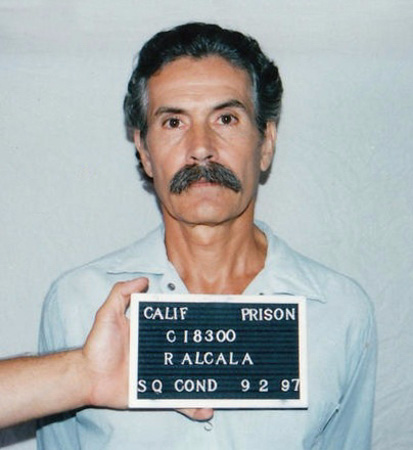Rodney Alcala. Handsome, charismatic, deadly killer. His murders and participation on The Dating Game Show are what people remember about Rodney Alcala. The big question is, what turns a child into a serial killer? Take an exploration into the childhood of Rodney Alcala; perhaps there are answers.
The Horrific Crimes
Rodney Alcala has been convicted of the rape, torture, and murder of seven female victims. He was given the death penalty in 1979 for the kidnapping and murder of a 12-year-old child.
Many people speculate that there could be between eighty and 130 victims strewn through his killing fields in the short span of eight years. These assumptions may never be solved, as Rodney Alcala died in prison due to natural causes on July 24, 2021.
The Dating Game Killer
Rodney Alcala earned the moniker "The Dating Game Killer" after appearing on the game show as contestant number one. He won the date with the bachelorette. However, she refused to go out with Rodney, finding him "creepy." This rejection may have fueled Rodney Alcala's next murder spree of three women quickly after the show appearance.

What did Rodney Alcala's father do to him?
Although Rodney was born in San Antonio, Texas, the family moved to Mexico when Rodney was just eight years old. While in Mexico, Rodney's father abandoned the family three years later. The reasoning seems to be that Raoul Alcala couldn't find work. The family was homeless and destitute.
Rodney's father leaving was a blow to the family. He was "the man of the house," now being the oldest male child. At the tender age of eleven, Rodney tried to understand why his father left. He also felt obligated to find ways to help his mother and siblings survive.
Being abandoned by a parent puts an incredible amount of fear, uncertainty, and guilt on a child. This emotional turmoil wreaks havoc on a young brain. Young children especially, as they cannot rationalize traumatic events.
The guilt, shame, and rejection could have led to the eight-year killing spree. Traumatic events frequently lead to mental health issues that go undiagnosed, misdiagnosed, and untreated.
When Rodney was 11-years-old his mother moved the family, Rodney, and his two younger sisters, back to the United States. The family settled in Los Angeles, California, where Rodney's murder spree would begin.
First Signs of Trouble
At the age of 17, Rodney joined the United States Army.
Rodney Alcala was discharged from the military after being diagnosed with Antisocial-Personality Disorder by a military psychologist.
Antisocial personality disorder usually referred to as Sociopathy, is a mental disorder in which a person consistently shows no regard for right and wrong and ignores the rights and feelings of others.
People with antisocial personality disorder tend to antagonize, manipulate or treat others harshly or callous indifference. They show no guilt or remorse for their behavior.
Rodney Alcala was also diagnosed during the trial. The psychiatrists evaluating him could not agree on what he had. These psychiatrists diagnosed him with Narcissistic Personality Disorder, Borderline Personality Disorder, Malignant Narcissistic Personality Disorder, Psychopathy, and Sexual Sadism Co-morbidities.

The Makings of a Killer
Whether real or imagined, trauma is the driving force behind many individuals' mental health issues. Traumatic experiences in his childhood could have pushed Rodney headfirst into mental and emotional chaos.
According to Adverse Childhood Experiences, ACEs, a part of the Center for Disease Control and Prevention, correlate adversity with cumulative adult mental health. Individuals' childhood experiences are the foundation of determining future emotional and mental stability.
ACEs include child abusive experiences (e.g., physical, sexual, and verbal abuse) and broader experiences of familial dysfunctions, such as witnessing violence at home, parental separation, abandonment, and growing up in a family affected by substance use/abuse, mental illness or criminal behavior.
Some studies conclude an increasing number of ACE markers are associated with mental well-being conditions, including; depression, anxiety, panic reactions, hallucinations, psychosis, and suicide attempt, along with overall mental health.
ACEs believe that the impact of any traumatic event could have long-term effects on a child's ability to maintain balance and process trauma. Some researchers have linked familial behaviors with adults' mental stability, suggesting that the impacts of ACE's markers are what push much of their cyclical nature.
Nature or Nurture?
There is not much known about Rodney Alcala's childhood before
eight, besides the family moving to Mexico. Could there have been maltreatment, violence, or substance abuse? Could Rodney have developed mental health issues after his father abandoned him? Or were the seeds of Sociopathy lurking in the depths of Rodney Alcala's mind since birth?
Supposing the ACE's assumptions are correct, Rodney Alcala could have developed his twisted thoughts and brought them to reality by his father's abandonment and subsequent tribulations in a single-parent household. Being the only boy, much of the family's burdens were placed on Rodney's shoulders. The stress and fear could very well encourage mental health disturbances.
The risk factors from ACEs show a would-be correlation between Rodney's childhood and subsequent horrific murders.
- Children and youth who don't feel close to their parents/caregivers and feel like they can't talk to them about their feelings
- Youth who start dating early or engaging in sexual activity early
- Children and youth with few or no friends or with friends who engage in aggressive or delinquent behavior
- Families with caregivers who were abused or neglected as children
- Families with young caregivers or single parents
- Families with low income
- Families with adults with low levels of education
- Families experiencing high levels of parenting stress or economic stress
- Families with caregivers who use spanking and other forms of corporal punishment for discipline
- Families with inconsistent discipline and/or low levels of parental monitoring and supervision
- Families that are isolated from and not connected to other people (extended family, friends, neighbors)
- Families with high conflict and negative communication styles
- Families with attitudes accepting of or justifying violence or aggression
Since little is known about Rodney's childhood, we can only speculate about his upbringing. However, it does seem that there was more going on behind closed doors in the Alcala household.
https://www.grunge.com/419963/the-truth-about-rodney-alcalas-time-in-the-military/
https://www.cdc.gov/violenceprevention/aces/riskprotectivefactors.html












